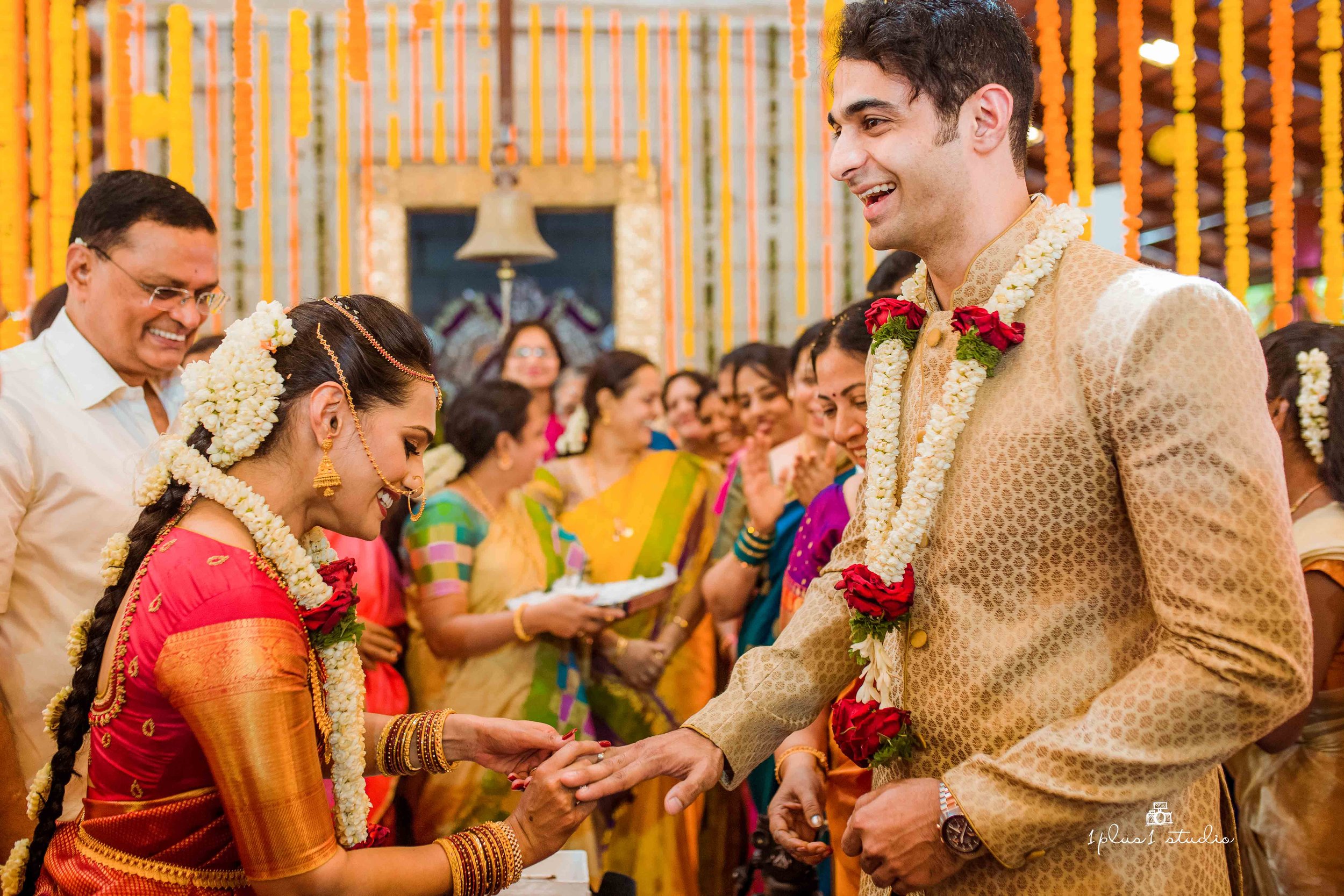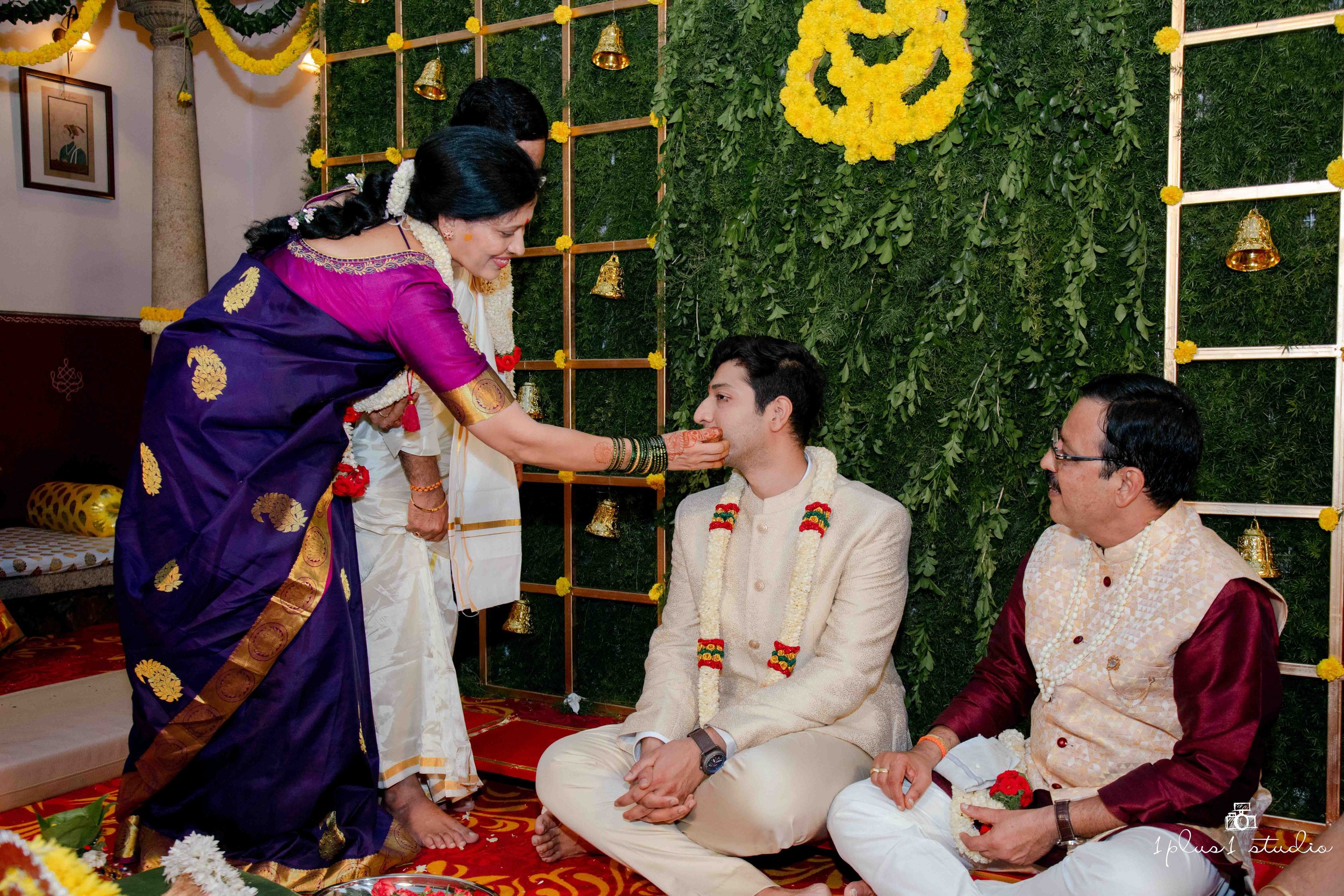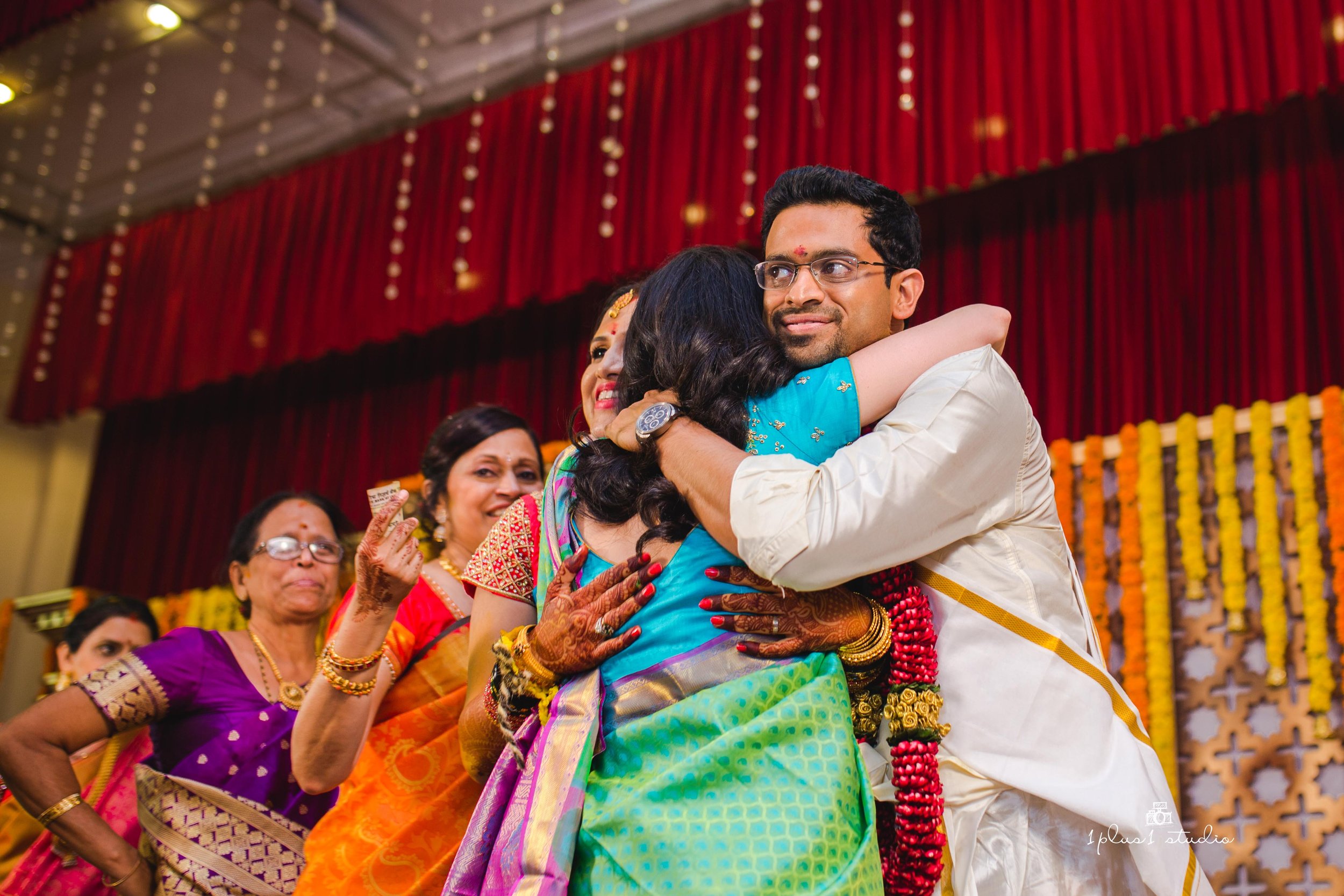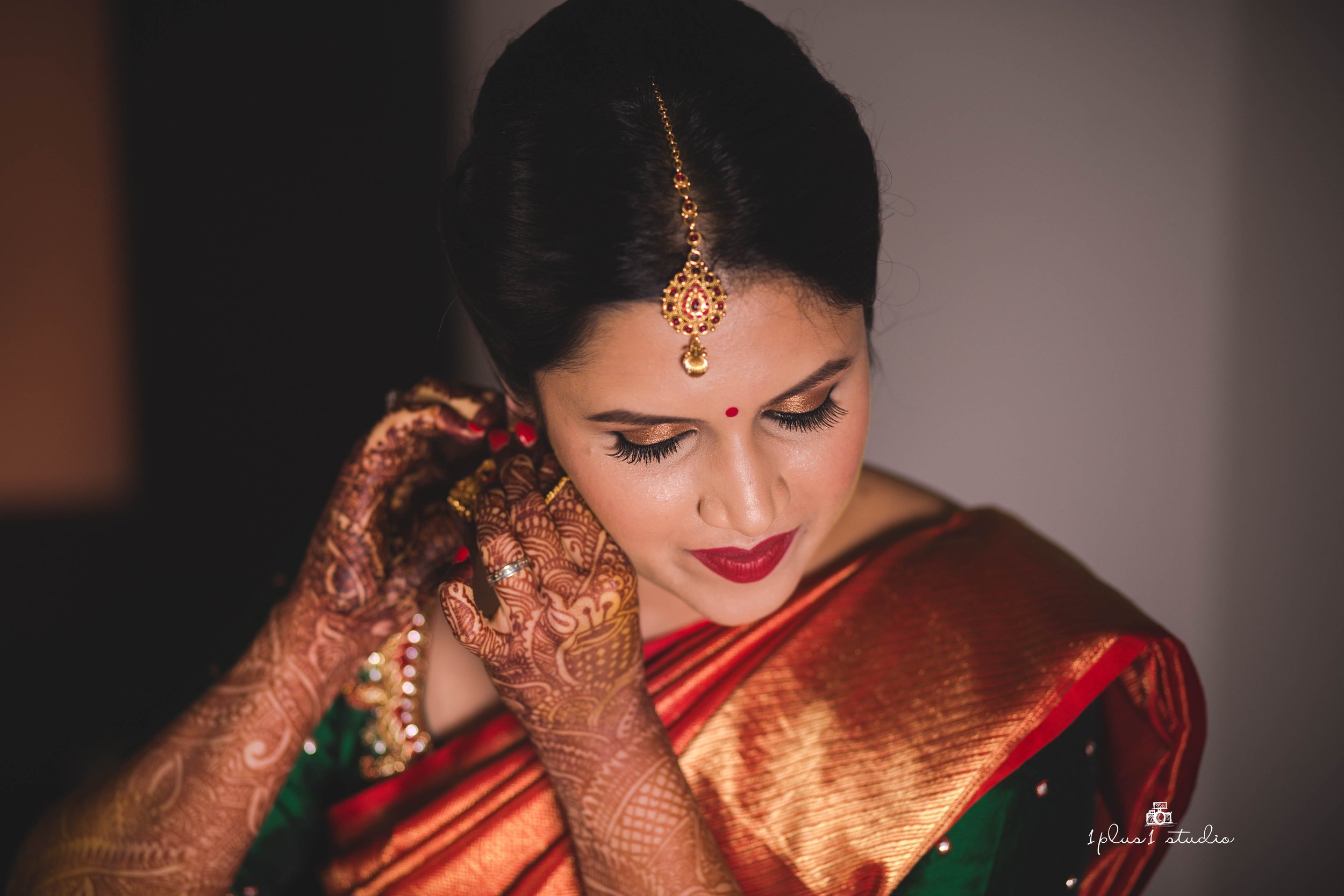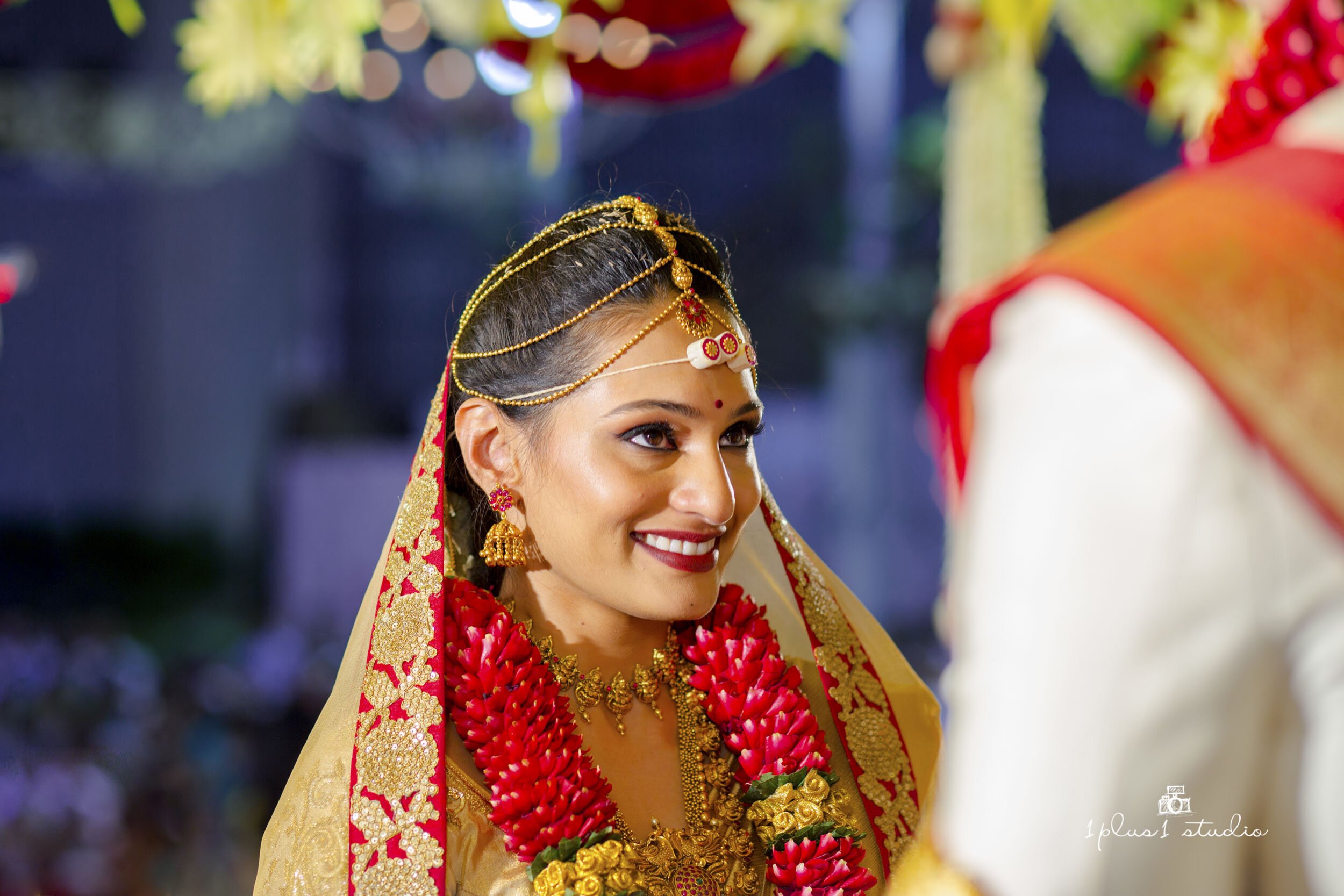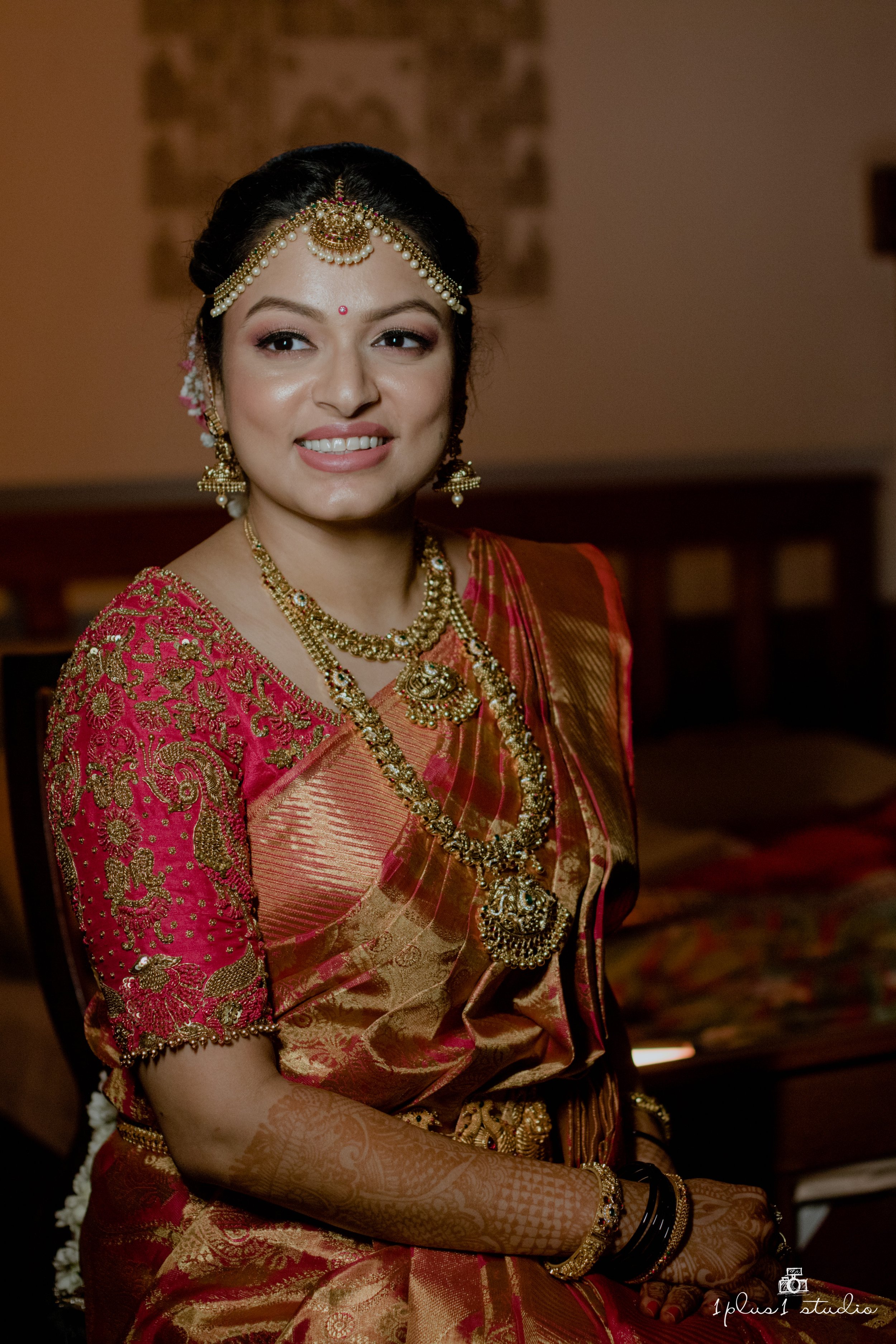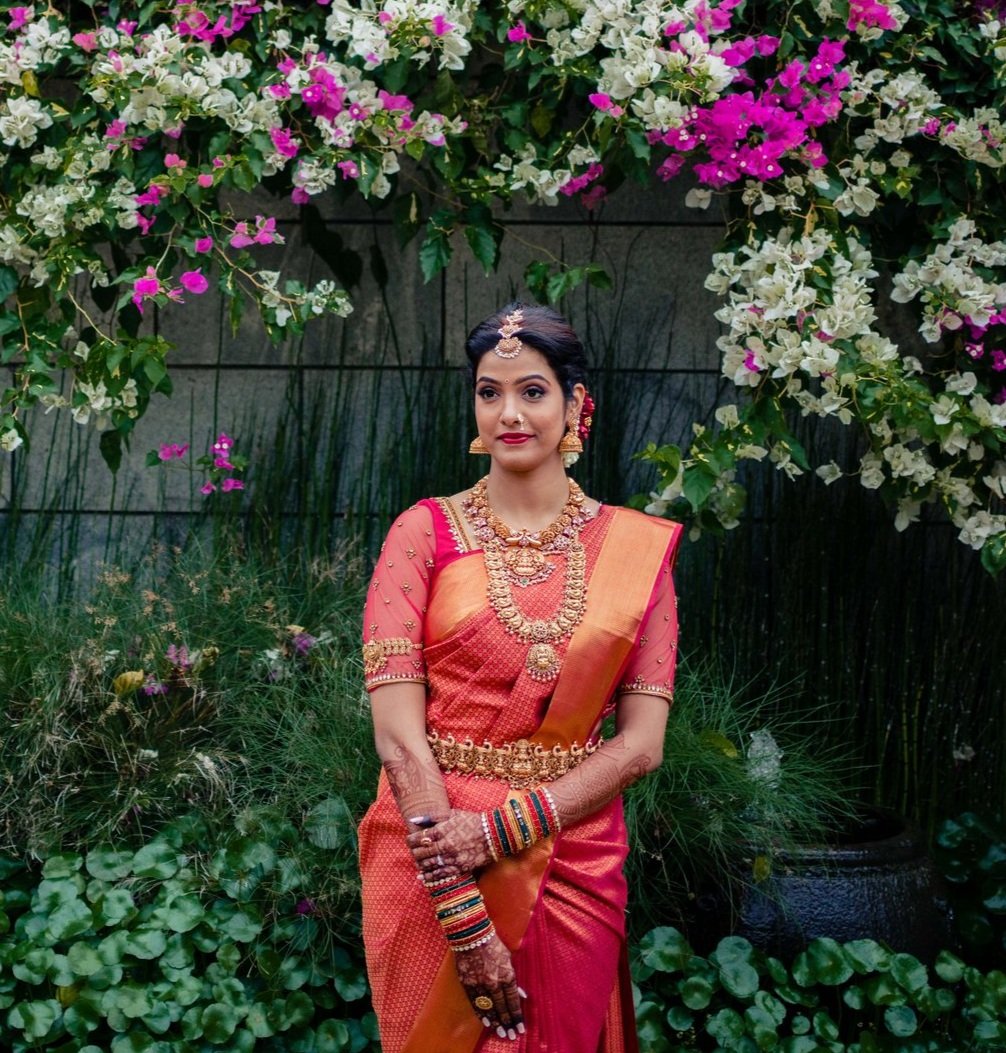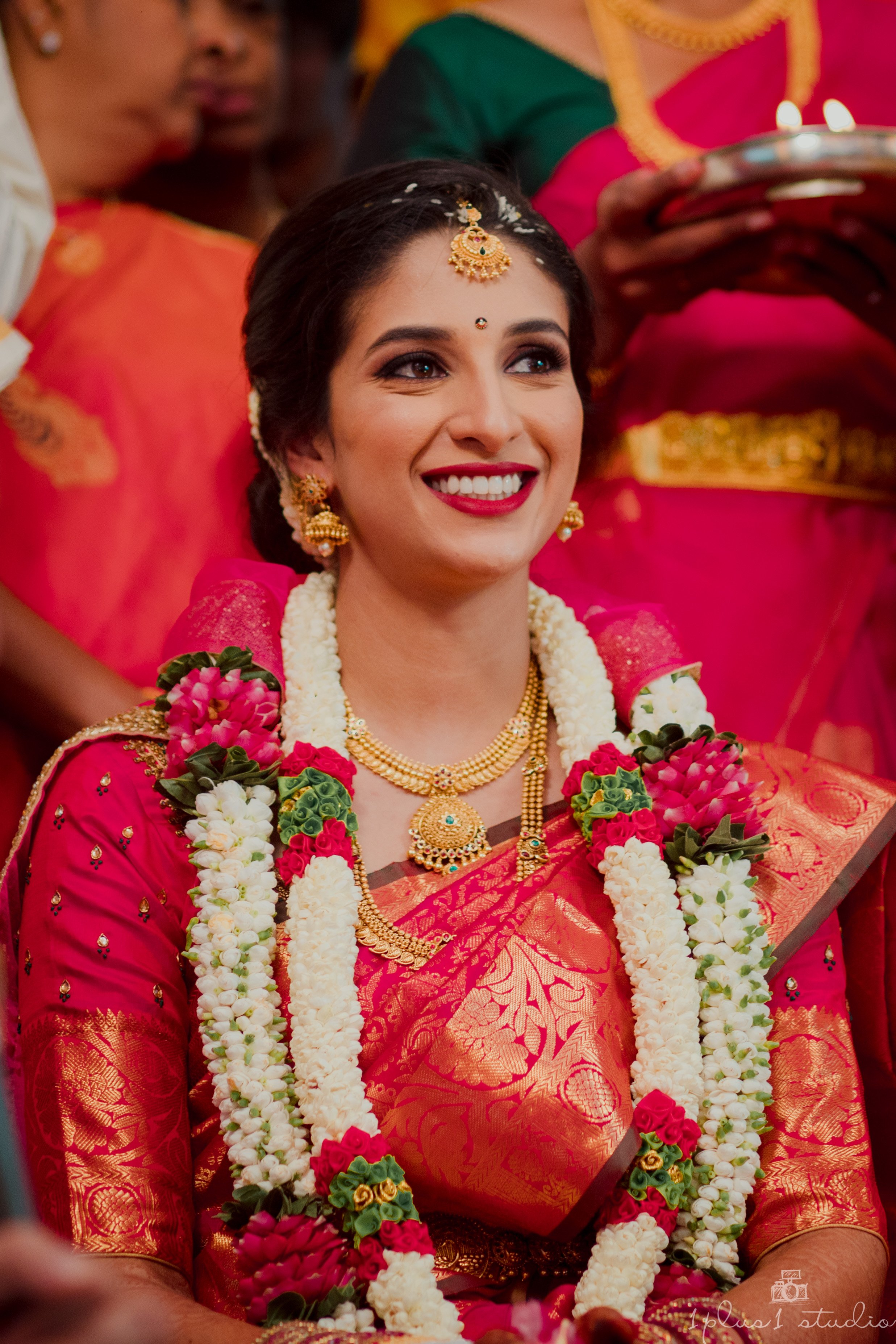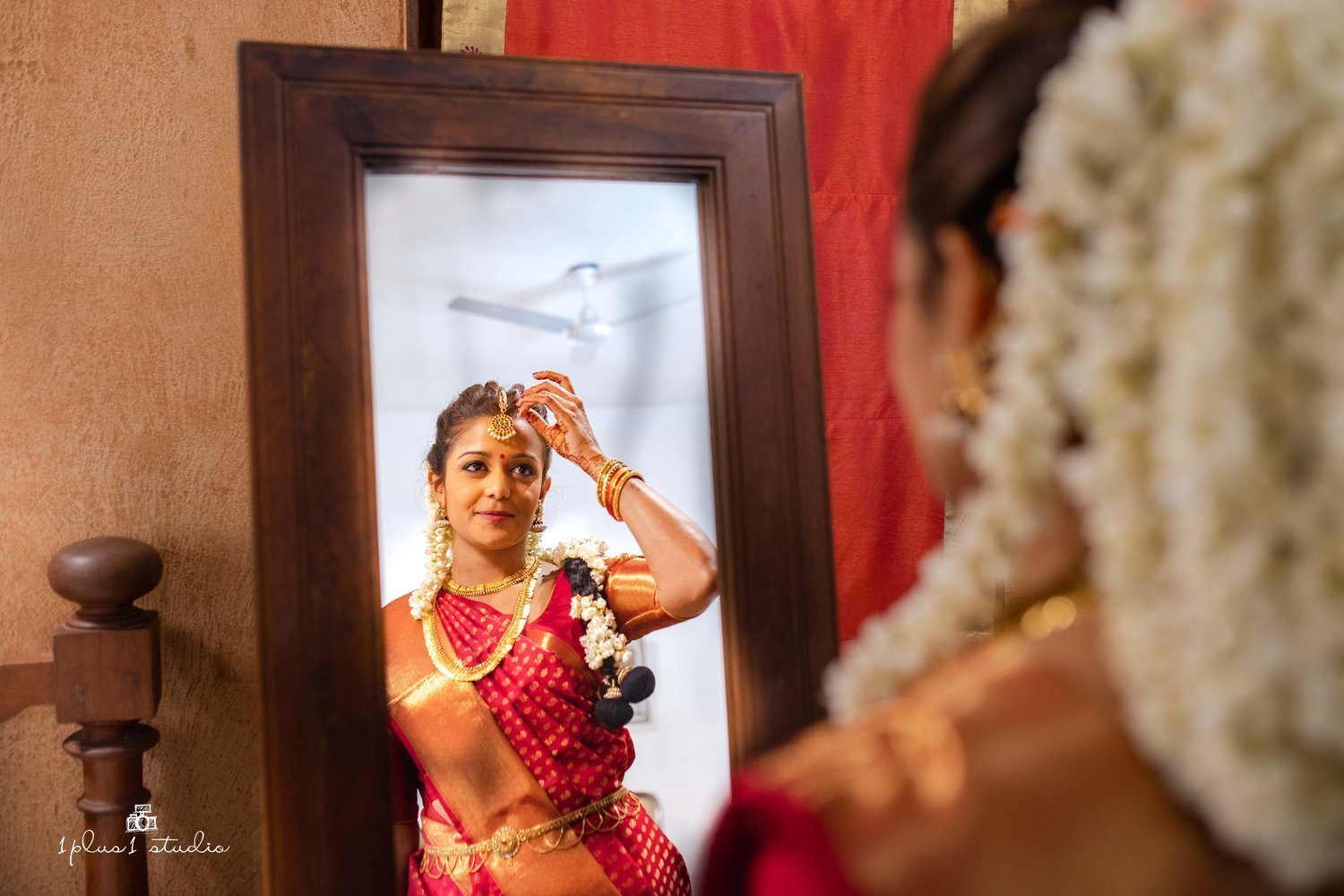Kannada weddings refer to the traditional wedding ceremonies celebrated by Kannadigas or the Kannada people. Kannadigas trace their ancestry to the state of Karnataka in India and its surrounding areas.
Kannada weddings in the modern era are an interesting blend of traditions and colorful ceremonies, with an emphasis on forming a bond between the two families. The celebrations are usually spread over two to three days. Classic events like Dev Karya, Saptapadi, etc., form an integral part of the weddings.
While traditions and rituals may differ slightly among the various Kannada communities, the symbolism of the core events remains the same. In essence, Kannadiga weddings celebrate the beginning of the newly wedded couple’s journey together.
Making New Beginnings in the Traditional Way
The beauty of Kannada weddings is that they abide by the meaningful rituals and ceremonies that are a part of their rich culture. At the same time, they try to add a modern touch to the events to make them more relevant for the young couple.
Like most Hindu weddings, Kannada wedding rituals are based on the Vedas or ancient Indian scriptures. But there’s a strong influence of the Karnataka region on the rituals. While vibrant celebrations mark the special occasion, the focus is on creating memories. As such, Kannada wedding celebrations have a sophisticated vibe to them.
A Mesmerizing Milieu of Dresses, Jewellery, and Food
On the wedding day, the bride wears a traditional Naavari saree of 9 yards. Green glass bangles adorn her hands. She completes her bridal look with gold jewelry, such as gold necklaces, jhumkas, maang tika, and more. A kamarbandh sits on her waist and adds to her look.
The groom puts on a white vesti or dhoti with ornate thin borders in typical South Indian style, along with a kurti or sherwani. But during the wedding ritual, he wears an angavastram or silk stole along with the vesti. A pheta or turban sits on his head.
A pleasant whiff of jasmine and other flowers fills the wedding venue. Food forms an integral part of Kannada weddings. A traditional wedding menu includes items like puri, vada, Bisebele bath, payasam, kesari bhat, etc. In keeping with the traditions, the food is served on banana leaves.
The Meaningful Rituals That Make Kannada Weddings Stand Out
A Kannada wedding comprises several beautiful rituals and ceremonies. Many of the rituals are performed by all communities in Karnataka. But for some communities, a few of the rituals may differ.
NISCHAY TAMULAM
Nischay Tamulam is the official engagement ceremony before a Kannada wedding. This ceremony is held after the bride and groom's horoscopes have been matched.An age-old practice, it is done to ensure that the couple has a successful married life. On this day, a priest fixes the auspicious wedding date and time.
The parents from both sides exchange plates full of betel leaves and nuts and bless the couple. The bride is presented with a saree, blouse, sweets, and coconut by the groom’s parents. The groom receives a dhoti, sweets, coconut, and other fruits from the bride’s parents.
Naandi
The Naandi ceremony takes place a day before the marriage ceremony. It is performed in the homes of both the groom and the bride. It marks the beginning of the wedding ceremony.
Naandi is symbolic of presenting the first marriage invitation to the almighty. Both parties seek blessings for a smooth wedding ceremony and a long and happy wedded life for the couple. A priest fills a traditional copper pot with holy water and places a coconut on top of it. It symbolizes the pot of nectar or Amrit.
Mandap Puja
Mandap puja is the first ritual of the wedding ceremony that takes place on the wedding day.
Mandap refers to the area or stage where the wedding ceremony is set to take place. The priest purifies the mandap by chanting mantras and prepares the area for the wedding.
Dev Karya
A pre-wedding ceremony, Dev Karya is performed on the wedding day. The groom visits one or more temples and worships the deity before he sets out to marry his bride.
A significant part of the ceremony involves placing all the items to be used in the wedding ceremony before Lord Ganesha. This is done to sanctify the objects and seek his blessings for the auspicious event.
Groom’s Welcome
As the name indicates, this ceremony is about welcoming the groom. Once the groom reaches the wedding venue with his marriage party, five married women from the bride’s side receive him at the entrance.
They take turns performing aarti and extending him a traditional welcome. The bride’s father then escorts the groom to the mandap.
Var Puja
Kannada traditions consider the groom to be an incarnation of Lord Vishnu. Members of the bride’s family worship the groom and lead him to the wedding mandap.
The bride’s father washes the groom’s feet and presents him with a silk vesti and angavastram. Kannada wedding traditions have it that the groom carries out the marriage rituals wearing the clothes presented by the bride’s father.
Jaimala
The bride enters the venue keeping her face covered behind a peacock-feather fan. A cloth screen shields the couple from seeing each other. As the screen is slowly lifted, the couple gets to look at each other for the first time on the wedding day.
When it’s time for the jaimala, the groom and the bride exchange flower garlands three times. This symbolic wedding ritual indicates the unification of two souls through matrimony.
It is a visual delight to witness the ceremony as the bride and groom take the first steps towards becoming a married couple, as their friends and family look on.
Dhareherdu
Dhareherdu is the custom of the bride’s father giving her hand to the groom.
As he places his daughter’s hand in the groom’s hand, he expects the groom to take care of his daughter in every possible way.The groom promises to be a good life partner for his bride, and the wedding rituals begin on this positive note.
Saptapadi
Saptapadi is the ritual where the couple takes their wedding vows while going around the sacred fire. They go around the fire seven times, and during each of the rounds, they take a different vow for their married life ahead. This ritual is symbolic of their becoming life partners for their next seven births on earth.
One end of the bride’s saree is tied to an end of the groom’s outfit to indicate their unbreakable nuptial knot. This is followed by the groom tying the mangalsutra or sacred thread around the bride’s neck, which marks them as a wedded couple.
Okhli
Okhli refers to a post-wedding fun game. The groom’s ring is dropped in a huge vessel filled with coloured water or milk. The bride and the groom dip their hands in the liquid and compete with each other to retrieve the ring. This game is played three times before a winner is declared.
This fun game serves to break the ice between the two families after the wedding.
Vidaai
Vidaai marks one of the most emotional moments in an Indian wedding. It is the ceremony when the bride bids adieu to her family and friends before she sets off with her groom for her in-law’s home.
The bride is given a teary farewell by her loved ones even as they wish her a wonderful married life ahead.
Griha Pravesh
The term 'Griha Pravesh' translates into entering into a house. It marks the entry of the bride in her new home, i.e., her in-law’s home.
The bride is given a warm welcome and ushered into the house by her mother-in-law. She topples a pot or kalash over-filled with rice kept at the threshold of the house before stepping inside.
This symbolizes that wealth and prosperity will overflow into the home with her arrival.
Kannada Wedding Wedding Albums
The Kannada Bride
Kannada Wedding Videos
Other Resources
To Wrap
Kannada weddings are colorful ceremonies that involve several big and small rituals.
The Kannadigas are proud to carry forward their rich cultural legacy. That is why even when they introduce modern events in their wedding ceremonies, most don’t shy away from the essential traditional rituals.

